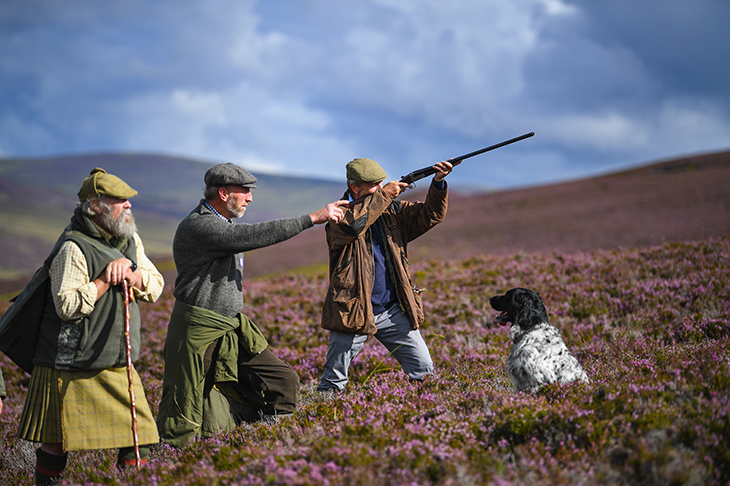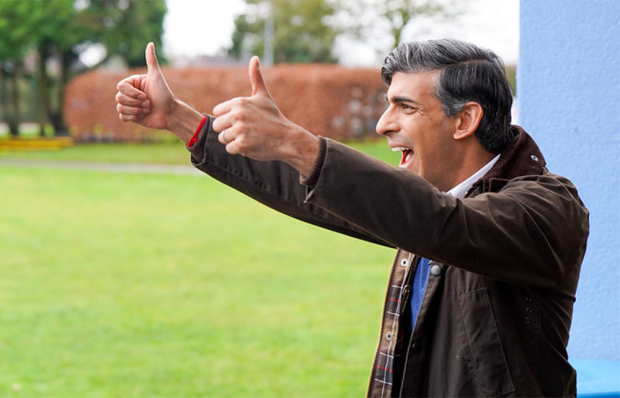Bad sport
Sir: At last a respected member of the shooting community has popped his head above the parapet. Patrick Galbraith has had the courage to express the view that many of us from the ‘bygone sporting era’ hold, but have either been too afraid of the commercial consequences, or too idle, to go public (‘Dangerous game’, 12 October). The shooting fraternity has done an awful job of educating newcomers about what constitutes a great day out. It has allowed quantity to prevail over quality. It has failed to ensure that appreciation of the ‘craic’ and the environment are an essential element of the experience. Like all activities, when you do it to excess, you draw unwelcome attention. It is time big commercial shoots led by example and reverted to the bygone era.
Hugh Fell
West Fleetham, Northumberland
Good for wildlife
Sir: Patrick Galbraith may have enjoyed reminiscing about the past as he sat on the Queen’s sofa at Sandringham, but game shooting is more popular and accessible than ever before, precisely because it has embraced change. Where conservation best practice is being followed, wildlife is also enjoying this new golden era — irrespective of the size of a shoot. On our farm in Leicestershire we demonstrated that a well-run shoot can increase the abundance and breeding success of several species including blackbird, song thrush, dunnock, whitethroat, chaffinch and yellowhammer. When we looked at 34 farms nearby, we found that those with shoots had 30 per cent more farmland birds.
Andrew Gilruth
Game & Wildlife Conservation Trust
Fordingbridge, Hants
Be afraid
Sir: By taking one comment out of context from the paper that accompanied my Y2K lecture for Gresham College, Matthew Lynn seriously misrepresented my views about the Millennium Bug (‘The Brexit grifters’, 5 October). He quoted my final bullet point of the paper and followed the quote immediately with: ‘In short, it was a scam.’ In fact, my whole lecture was written to demolish this dangerous myth. One page later I wrote: ‘The Y2K problem is often referred to now as an example of an exaggerated threat or to support an argument that expert warnings should be ignored. This is completely the wrong conclusion to draw from the fact that the worst predictions did not occur.’ Despite the thousands of serious errors found and corrected before January 2000, there were software failures that caused, for example, 15 nuclear reactors to shut down, and an unusual number of Down’s Syndrome babies because more than 150 pregnant women were given the wrong results from pathology laboratory tests, as the computer system in nine hospitals calculated the women’s date of birth incorrectly from January 2000. Thousands of professionals worked hard to prevent the computer failures that would otherwise have occurred 20 years ago, and their work should be applauded rather than being dismissed as a scam.
Martyn Thomas
Fellow, Gresham College, London
What’s changed?
Sir: Rod Liddle is right in saying that the BBC is complacently impervious to criticism from its audience (‘How the BBC can achieve real diversity’, 12 October). This is not a new problem. In 1998 I emailed the Today programme to complain about a sanctimonious and overbearing savaging that John Humphrys had given a hapless school governor over a trivial complaint. The editor responded simply: ‘Rubbish.’ In the exchange of emails that followed, he informed me that as only one of their millions of listeners had complained, Mr Humphrys was unquestionably in the right, as was his editor (a Mr R. Liddle).
Mark Carden
Stroud, Glos
An accidental groping
Sir: Feeling nervous when asked to entertain royal visitors in a small dining-room, a friend sought reassurance by stroking the warm, velvety head of her labrador under the table (‘The men I have groped’, 5 October) only to see with horror that the labrador was on the other side of the room, while her hand caressed the moleskin-clad knee of a young courtier.
Phyllida Hart-Davis
Uley, Glos
Simple mistake
Sir: I believe that Matthew Parris may be mistaken in attributing the quote ‘We are all guilty’ to Peter Simple’s character Dr Spacely-Trellis (‘All ages are gullible — including our own’, 12 October). My recollection is that it was used by another of Simple’s brilliant creations, the eminent social psychologist Dr Heinz Kiosk.
Trevor English
Maidstone, Kent
Mrs T’s tipple
Sir: I am not sure where Bruce Anderson got his information about Mrs Thatcher’s wine habits (Drink, 12 October), but on at least two occasions she drank English wine. In 1983 I supplied my 1982 Tenterden Vineyards off-dry white wine to the HMG cellars under Lancaster House. This wine was sent out to Goa for the Queen’s ‘CHOG’ lunch, at which Mrs T was of course present. Some months later the chief government butler phoned me asking (a) would the wine have survived a trip to Goa and back, as there were some bottles left over, and (b) did I have any more, as Mrs T wanted to serve it at the 1984 G7 lunch. I answered yes to both. I have it on good authority that the wine was much enjoyed.
Stephen Skelton MW
London SW6
Got something to add? Join the discussion and comment below.
Get 10 issues for just $10
Subscribe to The Spectator Australia today for the next 10 magazine issues, plus full online access, for just $10.
You might disagree with half of it, but you’ll enjoy reading all of it. Try your first month for free, then just $2 a week for the remainder of your first year.














Comments
Don't miss out
Join the conversation with other Spectator Australia readers. Subscribe to leave a comment.
SUBSCRIBEAlready a subscriber? Log in